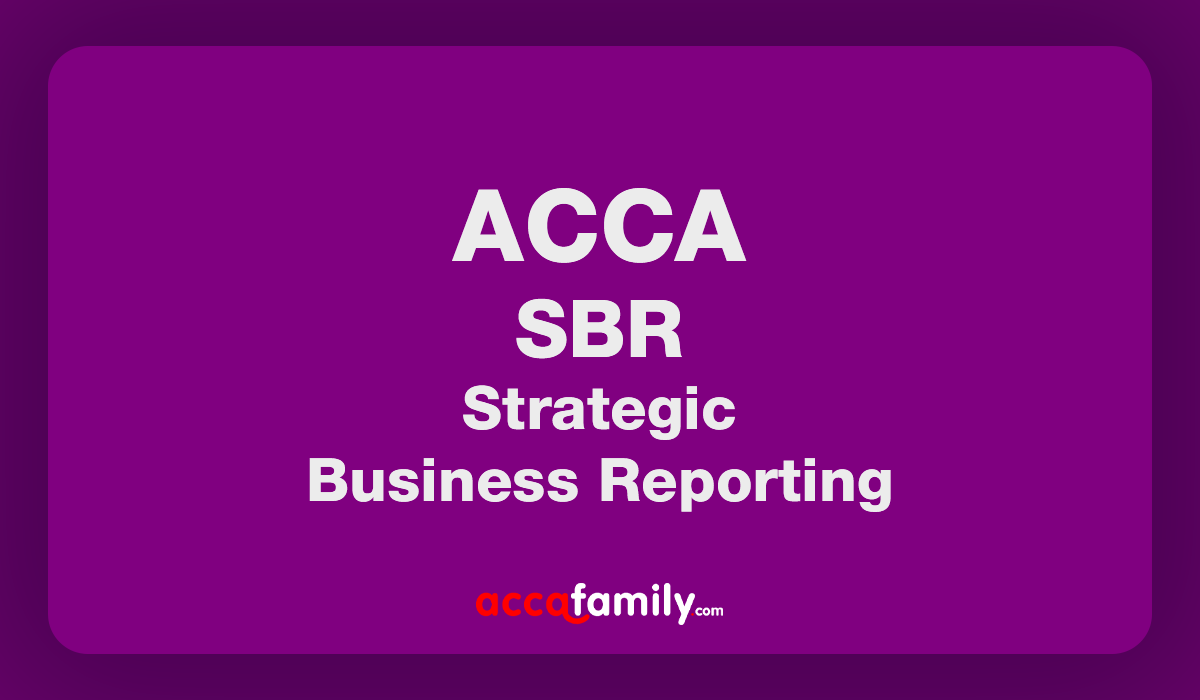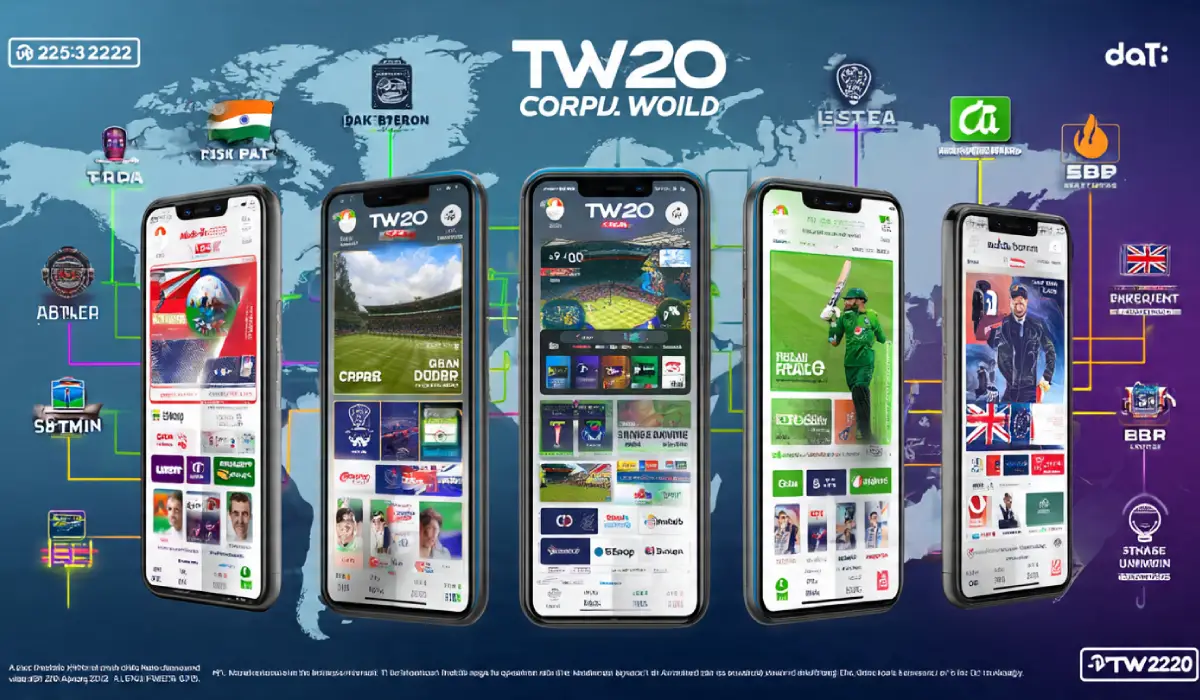Are you searching for comprehensive ACCA Strategic Business Reporting (SBR) materials and resources that will help you master this challenging professional-level exam? The Strategic Business Reporting module represents one of the most crucial stepping stones in your ACCA journey, requiring extensive preparation and the right study materials to ensure success.
Strategic Business Reporting builds upon your foundational accounting knowledge, pushing you towards advanced financial reporting standards and complex business scenarios. Understanding this module thoroughly is essential for your progression to the final Strategic Professional Options papers.
What is Strategic Business Reporting (SBR) in ACCA
Strategic Business Reporting (SBR) stands as a mandatory paper within the ACCA Strategic Professional level, serving as the gateway between your Applied Knowledge and Applied Skills foundation and the final Strategic Professional Options. This comprehensive module focuses on advanced financial reporting, requiring you to demonstrate expertise in complex accounting standards, group accounting, and strategic financial analysis.
The SBR syllabus encompasses several critical areas:
- Advanced Financial Reporting Standards: Including IFRS 15, IFRS 16, and other complex standards
- Group Financial Statements: Consolidated accounts, business combinations, and associate companies
- Specialised Entities: Not-for-profit organizations, public sector entities, and small and medium enterprises
- Current Issues in Financial Reporting: Emerging trends, regulatory changes, and contemporary challenges
- Professional Skills: Analytical skills, evaluation techniques, and commercial acumen
Core Learning Outcomes
Your success in Strategic Business Reporting depends on mastering these fundamental competencies:
- Financial reporting framework knowledge
- Complex transaction analysis
- Group consolidation expertise
- Professional judgment application
- Ethical considerations in reporting
The examination format combines both computational questions and discursive elements, testing your ability to apply technical knowledge within realistic business contexts.
| Exam Component | Weighting | Duration | Question Types |
|---|---|---|---|
| Section A | 50 marks | 90 minutes | 2 constructed response questions |
| Section B | 50 marks | 90 minutes | 2 constructed response questions |
| Total | 100 marks | 3 hours | 4 questions |
How Difficult is Strategic Business Reporting to Study and Pass
Strategic Business Reporting consistently ranks among the more challenging ACCA papers, with pass rates typically ranging between 40-50%. The complexity stems from several factors that require careful consideration during your preparation phase.
Technical Complexity Factors
The difficulty level of SBR stems from its comprehensive scope and technical depth. You’ll encounter intricate accounting standards that demand both theoretical understanding and practical application skills. The module requires you to navigate complex scenarios involving multiple accounting treatments and professional judgment calls.
Key challenge areas include:
- Complex Group Structures: Multi-layered consolidations with various ownership percentages
- Revenue Recognition: IFRS 15 applications across diverse industries and contract types
- Lease Accounting: IFRS 16 complexities and transition requirements
- Financial Instruments: Classification, measurement, and hedge accounting principles
- Current Issues: Staying updated with evolving standards and interpretations
Time Management Pressures
The examination format presents significant time management challenges. You must complete four substantial questions within three hours, requiring efficient allocation of time across computational and written elements.
Professional Skills Integration
Unlike earlier papers, SBR demands integration of professional skills alongside technical knowledge. You must demonstrate commercial awareness, analytical thinking, and effective communication throughout your responses.
Why Choose Kaplan for Strategic Business Reporting
Kaplan has established itself as a leading provider of ACCA study materials, offering comprehensive resources specifically designed for Strategic Business Reporting success. Their approach combines decades of educational expertise with innovative learning methodologies.
Comprehensive Study Materials
Kaplan’s SBR study text provides structured coverage of the entire syllabus, ensuring you encounter all essential topics in logical progression. Their materials include:
- Detailed explanations of complex accounting standards
- Practical examples demonstrating real-world applications
- Progress checks to monitor your understanding
- Exam-standard questions for practice and assessment
Expert Author Credentials
The Kaplan study text benefits from authorship by qualified professionals with extensive teaching and examining experience. These experts understand the nuances of ACCA examinations and structure content to address common student challenges.
Updated Content Alignment
Kaplan maintains rigorous content review processes, ensuring their materials reflect the latest syllabus changes, accounting standard updates, and examining team guidance. This commitment means you study current, relevant material that aligns with examination expectations.
Proven Track Record
Thousands of successful ACCA candidates have utilized Kaplan materials throughout their studies. The publisher’s reputation stems from consistent delivery of high-quality educational content that supports student achievement.
Benefits of Using PDF Study Texts
PDF study materials offer numerous advantages for modern ACCA candidates, particularly those balancing studies with professional commitments. Digital formats provide flexibility and convenience that traditional printed materials cannot match.
Accessibility and Convenience
PDF materials allow you to access your Strategic Business Reporting content anywhere, anytime. Whether you’re commuting, traveling, or studying during lunch breaks, digital materials ensure continuous learning opportunities.
Cost-Effective Learning
Digital study texts typically offer significant cost savings compared to printed alternatives, making quality education more accessible to candidates regardless of their financial circumstances.
Search and Navigation Features
PDF formats enable efficient navigation through extensive content. You can quickly locate specific topics, search for particular terms, and jump between related sections without physical page-turning delays.
Annotation Capabilities
Modern PDF readers support highlighting, note-taking, and bookmark creation, allowing you to personalize your study materials and create customized reference points for revision.
Environmental Considerations
Choosing digital materials supports environmental sustainability by reducing paper consumption and physical transportation requirements.
How to Plan Your SBR Study Schedule
Effective planning forms the foundation of successful Strategic Business Reporting preparation. Your study schedule should balance comprehensive coverage with adequate practice time, allowing for both learning and revision phases.
Assessment of Available Time
Begin by calculating your total available study hours between enrollment and examination date. Consider your personal commitments, work schedule, and other responsibilities to establish realistic daily and weekly study allocations.
Syllabus-Based Structure
Organize your schedule around the five main syllabus areas, allocating time proportional to their examination weightings and your confidence levels in each topic.
Recommended Time Allocation:
- Regulatory Framework (15% of study time)
- Reporting Standards (40% of study time)
- Group Financial Statements (25% of study time)
- Specialized Entities (10% of study time)
- Current Issues (10% of study time)
Learning Phase Structure
Your initial learning phase should focus on understanding fundamental concepts before progressing to complex applications. Break down each topic into manageable segments, ensuring thorough comprehension before advancement.
Weekly study pattern recommendation:
- Monday-Wednesday: New topic learning
- Thursday-Friday: Practice questions and applications
- Weekend: Review, revision, and progress assessment
Practice and Revision Integration
Incorporate regular practice sessions throughout your learning phase rather than relegating all question practice to final weeks. This approach reinforces learning and identifies knowledge gaps early in your preparation.
How to Effectively Prepare for Strategic Business Reporting Exam
Preparation effectiveness depends on combining systematic learning with strategic practice and comprehensive revision. Your approach should address both technical knowledge acquisition and examination technique development.
Understanding the Syllabus Structure
Begin preparation by thoroughly analyzing the official ACCA syllabus and study guide. Understand the learning outcomes, assessment criteria, and skill levels required for each topic area.
Active Learning Techniques
Engage with study materials actively rather than passive reading. Create summary notes, draw concept maps, and explain complex topics in your own words to ensure deep understanding.
Effective Study Methods:
- Spaced Repetition: Review topics at increasing intervals to strengthen memory retention
- Elaborative Interrogation: Ask yourself “why” and “how” questions about concepts
- Interleaving: Mix different topics within study sessions to improve discrimination skills
- Testing Effect: Regular self-testing to identify knowledge gaps
Question Practice Strategy
Develop a systematic approach to question practice that progresses from individual topic questions to full exam simulations.
Phase 1: Topic-Specific Practice Focus on individual syllabus areas, building confidence and technique for each question type.
Phase 2: Mixed Topic Practice Combine different topics within single practice sessions, simulating examination conditions.
Phase 3: Full Mock Examinations Complete entire papers under strict time conditions, replicating the actual examination environment.
Professional Skills Development
Strategic Business Reporting requires demonstration of professional skills alongside technical knowledge. Practice articulating complex concepts clearly and presenting well-structured responses.
Key skills to develop:
- Analysis: Breaking down complex scenarios into manageable components
- Evaluation: Assessing alternative treatments and their implications
- Commercial Acumen: Understanding business context and practical considerations
- Communication: Presenting findings clearly and professionally
Understanding SBR Examination Structure
The Strategic Business Reporting examination follows a specific structure designed to test both technical competence and professional skills application. Understanding this structure enables targeted preparation and effective examination performance.
Question Format Analysis
Each examination contains four questions, with specific patterns and requirements that candidates must understand:
Section A Questions (25 marks each):
- Complex scenario-based questions
- Multiple parts requiring different skills
- Integration of various syllabus areas
- Professional skills demonstration requirements
Section B Questions (25 marks each):
- Focused on specific technical areas
- May include current issues discussions
- Require detailed technical knowledge
- Often involve ethical considerations
Marking Allocation Understanding
Examination success requires understanding how marks are allocated across different response elements:
- Technical accuracy (60-70% of marks)
- Professional skills (20-30% of marks)
- Communication quality (10-15% of marks)
Time Management Strategies
Effective time management becomes crucial given the examination’s demanding requirements:
- Question Analysis (10 minutes): Read all questions carefully, identifying requirements
- Time Allocation (5 minutes): Distribute remaining time across questions based on mark allocation
- Structured Responses (160 minutes): Follow planned time limits for each question
- Final Review (5 minutes): Check completeness and accuracy
Common Challenges and Solutions in SBR
Strategic Business Reporting candidates frequently encounter specific challenges that can impact their examination performance. Understanding these common issues and their solutions helps you prepare more effectively.
Technical Complexity Management
The breadth and depth of technical content can feel overwhelming, particularly when studying alongside professional commitments.
Solution Approach: Create structured learning plans that break complex topics into digestible segments. Use mind maps and flowcharts to visualize relationships between different concepts and standards.
Application vs. Knowledge Balance
Many candidates struggle with applying theoretical knowledge to complex practical scenarios presented in examinations.
Solution Strategy: Practice extensively with scenario-based questions from various sources. Focus on understanding the “why” behind accounting treatments rather than memorizing rules.
Current Issues Awareness
Staying updated with evolving accounting standards and emerging issues poses ongoing challenges for candidates.
Solution Method: Regularly review ACCA’s technical articles, IFRS updates, and professional journals. Subscribe to accounting news feeds and maintain awareness of regulatory developments.
Writing Skills Development
SBR requires clear, professional communication alongside technical accuracy, challenging candidates with primarily computational backgrounds.
Solution Technique: Practice explaining complex concepts in plain English. Structure written responses logically with clear headings, bullet points, and professional language.
Last Minute Preparation Guide for SBR
Final preparation weeks require focused strategies that maximize your readiness while managing examination anxiety. Your last-minute approach should emphasize consolidation rather than learning new material.
Priority Topic Review
Concentrate revision efforts on high-impact areas that frequently appear in examinations:
- Group consolidations and complex structures
- Revenue recognition under IFRS 15
- Lease accounting applications
- Current issues and recent standard changes
- Professional ethics integration
Formula and Standard Memorization
Create concise reference sheets covering essential formulas, key ratios, and standard requirements. Focus on items you’re likely to forget under examination pressure.
Mock Examination Strategy
Complete at least three full mock examinations under strict time conditions during your final two weeks. Analyze performance patterns and adjust your technique accordingly.
Mock examination analysis should cover:
- Time allocation effectiveness per question
- Technical accuracy across different topics
- Professional skills demonstration quality
- Written communication clarity and structure
Stress Management Techniques
Implement stress reduction strategies to maintain peak performance during final preparations:
- Regular exercise and adequate sleep
- Mindfulness and relaxation techniques
- Positive visualization of examination success
- Support networks with fellow candidates and family
Examination Day Preparation
Prepare all necessary materials and documentation well in advance. Plan your journey to the examination center, allowing extra time for potential delays.
Strategic Business Reporting Success Tips
Achieving success in Strategic Business Reporting requires strategic approach combining technical mastery with effective examination technique. These proven strategies will enhance your preparation effectiveness and examination performance.
Comprehensive Understanding Priority
Focus on developing thorough understanding rather than surface-level knowledge. SBR examinations test application and analysis rather than simple recall.
Regular Practice Importance
Consistent question practice throughout your study period builds confidence and improves technique. Don’t restrict practice to final preparation weeks.
Professional Skills Integration
Remember that SBR tests professional skills alongside technical knowledge. Practice demonstrating commercial awareness, ethical consideration, and analytical thinking in your responses.
Current Affairs Awareness
Maintain awareness of contemporary financial reporting issues through professional journals, ACCA resources, and regulatory updates.
Structured Response Techniques
Develop consistent approaches to different question types. Use headings, clear explanations, and logical flow in all written responses.
Key Takeaways for Strategic Business Reporting Success
- Strategic Business Reporting represents a crucial stepping stone in your ACCA journey, requiring comprehensive preparation and quality study materials
- Kaplan study texts provide structured, expert-authored content that aligns with current syllabus requirements and examination expectations
- PDF materials offer flexibility, cost-effectiveness, and convenience for modern candidates balancing studies with professional commitments
- Effective planning involves systematic schedule creation, balanced topic coverage, and integration of learning with regular practice
- Examination success requires both technical competence and professional skills demonstration across complex, scenario-based questions
- Final preparation should focus on consolidation, mock examinations, and stress management rather than learning new material
Frequently Asked Questions
Q: How long should I allocate for Strategic Business Reporting preparation? A: Most successful candidates dedicate 4-6 months of consistent study, allocating 15-20 hours per week. Your timeline may vary based on prior experience and study intensity.
Q: Are Kaplan materials sufficient for passing SBR without additional resources? A: Kaplan study texts provide comprehensive coverage of the syllabus. However, supplement with ACCA’s official materials, practice questions from various sources, and current technical articles for optimal preparation.
Q: What makes Strategic Business Reporting more challenging than Applied Skills papers? A: SBR combines technical complexity with professional skills requirements, demanding application of knowledge to complex scenarios rather than straightforward calculations or rule application.
Q: How important are current issues for the SBR examination? A: Current issues typically represent 10-15% of examination content but can appear across multiple questions. Stay updated with recent developments in financial reporting standards and regulatory changes.
Q: Should I focus more on computational or written elements? A: SBR requires balance between both elements. Computational accuracy demonstrates technical competence, while written explanations showcase professional skills and commercial understanding.
Q: How can I effectively manage time during the examination? A: Practice under timed conditions regularly, allocate time proportional to mark allocation, and avoid spending excessive time on single questions at the expense of others.
Conclusion
Strategic Business Reporting (SBR) success depends on comprehensive preparation using quality materials, systematic study approaches, and effective examination techniques. The module’s complexity demands thorough understanding of advanced financial reporting standards, group accounting principles, and contemporary issues affecting the profession.
Kaplan’s study materials provide the foundation for this preparation, offering expert-authored content that aligns with ACCA’s requirements and examining team expectations. Combined with digital accessibility through PDF formats, these resources support flexible learning that accommodates your professional and personal commitments.
Your preparation journey should emphasize understanding over memorization, application over theoretical knowledge, and professional skills development alongside technical competence. Regular practice, structured revision, and awareness of current developments will position you for examination success.
Remember that Strategic Business Reporting represents more than just an examination hurdle – it develops practical skills essential for your future accounting career. The knowledge and analytical abilities you develop during SBR preparation will serve you throughout your professional journey, making your investment in quality preparation materials and systematic study approaches valuable beyond examination success.












